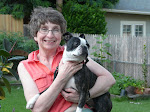"If you could pick any living person to sit in the seat next to you on a trans-Atlantic flight, who would it be?" It was a question asked as an ice-breaker exercise at some group planning session I attended years ago. Most people named some hot actor or musician. One or two named a spouse or friend.
My answer was easy, and none of those: Walter Cronkite.
My interest at the time was to ask the guy what he really thought about the world events that defined my formative years. He'd been in my living room every evening of my youth, delivering the day's news with calm and measured demeanor. His was the voice that alarmed my parents - I was too young to understand why - about missles in Cuba pointed in our direction. His words were the soundtrack to somber pictures of a president's flag-draped casket pulled by horses through the streets of Washington.
From him I learned about the deaths of Martin Luther King, Jr., and Robert F. Kennedy, Jr. ... civil rights demonstrations... confrontations between Chicago police and protestors at the 1968 Democratic National Convention... the Vietnam War and protests against it... the break-in at the Watergate hotel and its subsequent ramifications.
Never did I discern that he had any opinion about any of these events, save for two. My 7th grade classmates, glued to a black and white tv in the junior high gym waiting for follow-up reports to shocking news from Dallas, witnessed a moment of emotion when he announced that President Kennedy was, indeed, dead. We'll likely see that moment a lot over the next day or two, its rarity coming from the normally composed Cronkite making it all the more memorable.
And too, there was his coverage of sending people into space, especially (40 years ago Monday, matter of fact) setting foot on the moon. My physicist father was intensely interested in space and flight but seldom allowed his enthusiasm to show. So I was attuned to hints of passion in the voice of a dispassionate man, and in Cronkite's coverage of America's adventures in space heard something akin to the excitement of a little boy on Christmas morning.
Having seen these glimpses of something like an opinion from the avuncular news anchor, and realizing he had a front-row seat to every important event of my formative years, I wanted to know more about what he really thought about the events he conveyed to us for all those years. If he'd been stuck next to me on a long plane ride, I'd have welcomed the chance to pry that out of him.
That never was likely to happen, of course, and now it certainly never will.
But it points out what we have lost in the passing of Walter Cronkite. Clips of his broadcasts in today's retrospectives stand in stark contrast to what passes for tv news today.
He asked questions to get answers with intent to understand and inform or evince his subjects' true point of view, not to goad them into a sensational soundbite. He stated that it was the journalist's job to put personal viewpoint aside and give fair hearing to all sides, not to seek out the most extreme views, report from the flame-throwing fringes and define the result as balanced.
His words were spoken, not shoulted. They were well-crafted and presented in a calm, authoritative way, with confirmed facts behind them. Entirely unlike the live, late-breaking, shallow speculation (or fabrication) hurled at us today.
He delivered more useful information in a 30-minute newscast than anything we get on 24-hour cable today. Quality does indeed trump quantity if the goal is an informed public capable of self-governing.
He didn't seek stardom, but he was a star, at least in my universe. He represented what I thought journalism was supposed to be about when I chose it as my course of education. As quaint and lonely as that point of view now seems, he still does.
RIP Uncle Walter. Sorry I never got to share a plane ride with you. But now that I think about it, maybe I'm better for it. Because your opinion was not as important to me as your example.
The paradox of insular language
2 years ago



